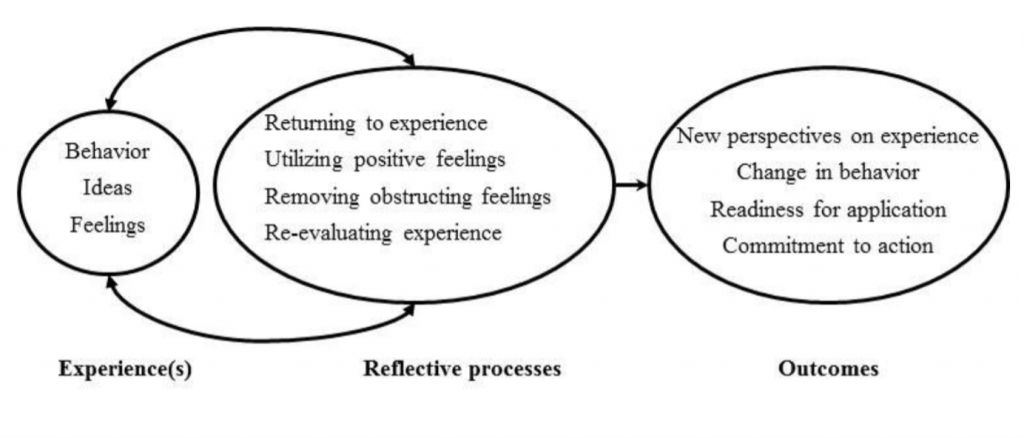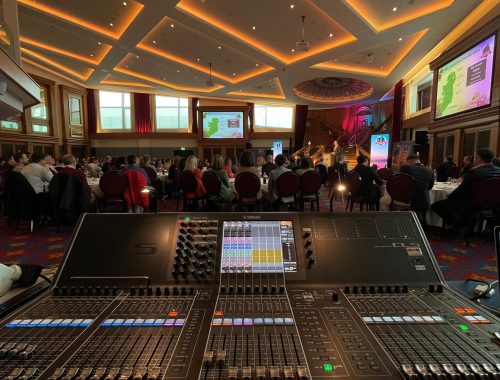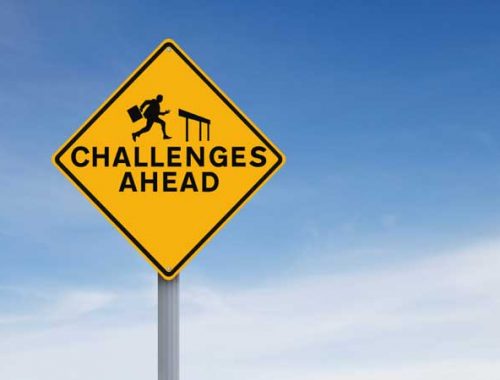Always Running Out of Time

Ever felt like time is your biggest enemy? That somehow there is never enough time in the day to get things done? That’s exactly how I felt when I first started my placement with the SARC Video Team. At first, I couldn’t help but feel as though time was acting against me, preventing me from doing my best work. This only had a knock-on effect on my stress levels as my anxiety crept in.
But, over time I learnt the importance of time management. I understood that with practice you can become more efficient, allowing you to do the same things within a smaller time frame.
With reference to Boud’s Model of reflection, I will explain how learning from my experiences has allowed me to gain a better understanding of time management. The model provides a starting and end point to the idea of reflection. It allows the learner to engage with their feelings and behaviour and create an understanding of how to change these once they validate their newfound knowledge of their experiences. (Boud, Koegh, Walker 34)

Experiences
Before the first day on the job with the SARC Video Team, I had attended two meetings with my supervisor. I was trained on how we set up the camera’s and connect them to the control room.
Consequently, when it came to the actual first day on the job, I went in thinking “oh yeah I know what I’m doing” and practically followed the check list in my head. I set three cameras up, one on the left, one on the right and a wide at the back of the room. I didn’t change the settings just yet. I went on a break and then came back an hour before the performance and fixed everything just in time.

Little effort was required at the start of the day. After a nice break I would come back and panic about how I’d only have an hour before the performance and one camera would look too blue. Another would be green and the third one would be too yellow. All because the settings hadn’t been set correctly.
I was almost robotic in my ways, as if this was the norm in which I should work, and no thought was given to the idea of how I could do things better. What could I improve on? As I was so set in my ways, I was failing to look at the bigger picture. Because I had failed to manage my time more successfully, I produced a “lower performance, and a negative impact on” my “psychological resources” ensued. (Sainz, Ferrero, Ugidos 637) This most certainly triggered my anxiety.
Reflective Process
Reflecting on my previous experiences, it’s clear to see that I did not utilise the time that was made available to me very successfully.
Although I was very confident in my ability to carry out the task as I have an extensive knowledge of how to use specific cameras and select the correct settings. I soon became aware that I had to remove certain feelings that were starting to become obstructive.
This had to be done so that I could allow myself to improve and carry out my job to the best of my ability. “When stress is perceived negatively or becomes excessive, students experience physical and psychological impairment. Methods to reduce stress by students often included effective time management.” (Misra, McKean 41)
I found myself faced with two contradicting feelings. I was super confident in the fact that I was well able to carry out my job, but I was getting very stressed and anxious at certain times because of poor time management. Through re- evaluating my experiences, it has become clear that I had to ensure the cameras were set up correctly earlier in the day. This not only would give me more time to focus on practicing different camera techniques. It would also allow me to remove the negative elements of stress allowing me to advance my job performance further.
Outcomes

Moving forwards, I need to take full advantage of the time periods that are made available to me so that I can successfully use it to improve my strengths. Rather than viewing time as a negative aspect of my job, I should regard it as something that will help me enhance my performance further.
“When are you at your best? Some of us truly are morning people. Others really do wake up after dark. Rather than trying to fit things and people into a schedule, how can you build you activities around your own natural best.” (Maxey,E. O’Connor 8)
With this in mind, I must tailor my working pattern so that it plays on my strengths instead of my weaknesses. From this, I am ready to make use of time more effectively. By implementing a new strategy, I will be able to set up all the equipment needed, in a more efficient and quicker time period. This in turn will allow me to make use of the extra time to practice my filming techniques such as camera movements, that will also help to boost the overall quality of the content I am creating. From this point forward, I will be able to expand my skill set further, which will help me look more desirable to any potential future employers.
I will be committed to implementing a new time management strategy into my working life as I am keen to eliminate my feelings of stress and anxiety. As, looking back on my previous experiences, this has only had a damaging effect on my ability to perform well in a working environment.
Works Cited
- Alvarez Sainz, María. M. Ferrero, Ana. Ugidos, Arantza. “Time Management: Skills to Learn and Put into Practice.” Education + Training, vol.61, no. 5, 2019, pp. 635- 648.
- Boud, David. Keogh, Rosemary. Walker, David. “Promoting reflection in learning. A model.” Boundaries of Adult Learning, edited by Richard Edwards, Ann Hanson and Peter Raggatt, Routledge, 1996, Pages 32-56.
- Martin-Rios, Carlos. “Reflection as a Meaning Making Process (Boud, Keogh & Walker” Reflection as a Meaning Making Process, Research Gate, Sept. 2018, https://www.researchgate.net/figure/Reflection-as-a-meaning-making-process-Boud-Keogh-Walker-1985_fig1_326804278
- Maxey, Cyndi. E. O’Connor, Kevin. 10 Steps to Successful Time Management. American Society for Training and Development, 2010.
- Misra, Ranjita. McKean, Michelle. “College students’ academic stress and its relation to their anxiety, time management, and leisure satisfaction.” American Journal of Health Studies, vol, 16, no. 1, pp. 41- 51.


